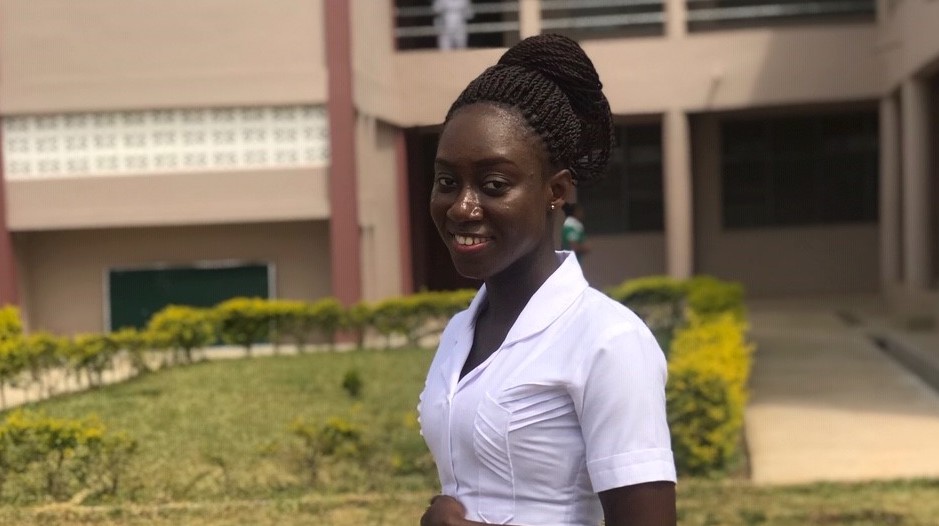
Anita Frimpomaa Oppong is a health tutor at St Michael’s Midwifery Training School, a program affiliated with the Kwame Nkrumah University of Science and Technology Hospital in Accra, Ghana. She is an experienced midwife with strong clinical experience. Anita works with the Sharearley Foundation, which works with young women and students and connects them with community empowerment projects
What does equal everywhere mean to you?
It means that both men and women, as well as boys and girls, should be treated the same and be assessed by their works or capabilities rather than by their gender. We should have a chance to pursue the same opportunities and be judged by the outcomes of our efforts, not by the fact that we are women.
Why do you advocate for equal rights for girls and women?
When girls and women know they will be given the same opportunities as boys and men, they will aspire for more. This is a key reason why I advocate for equal rights. In the absence of such equality, too many women will be fearful in their offices, professions, and schools, worrying that, if they rise or even try to rise, the opposite sex will pull them down by any means necessary.
What motivates you to do this work?
Right from infancy through basic school, it was always a big deal when a lady scored first in the examinations — someone would say something like, “Why should the guys allow a lady to top the whole class?” This seemed biased to me. I was also bothered that some ladies were okay with their failing positions just because they are “ladies”.
If inequality and gender bias starts early on in life, then it is no surprise those mindsets will persist as we become adults. I fight for equal rights for both men and women so that the tendency to place limitations on girls and women will be abandoned and women can excel without any gender pressure.
What are the main challenges you experience in your work to enhance gender equality?
Most of our illiterate men and even some who can read still consider the place of women to be in the kitchen and to take care of the children. We’ll have a girls’ empowerment program, and some of these ladies will report to me after some months that, in their quest to perform better, some of these men make statements that almost break their spirits. So yes, it is a challenge that after our efforts to get young girls to the top, there are still people who’d want to bring them down.
What progress are you seeing as a result of your work?
As part of my foundation’s goals, we have been organizing to meet young girls enrolled in senior high schools. We speak to them about their rights as well as the way forward in their education, how they can achieve higher aspirations. So far so good, my ladies are confident more than ever and their grades have improved; we are positive it will continue and get them to a greater place in the future.
What progress are you seeing in the wider gender equality movement?
In Ghana, we currently see women taking up leadership positions in politics, and at the ministerial level. Likewise, women are ascending to executive positions in the mining sector and in other fields previously considered to be the sole bastion of men. I think this signifies huge progress.
 BACK TO STORIES
BACK TO STORIES